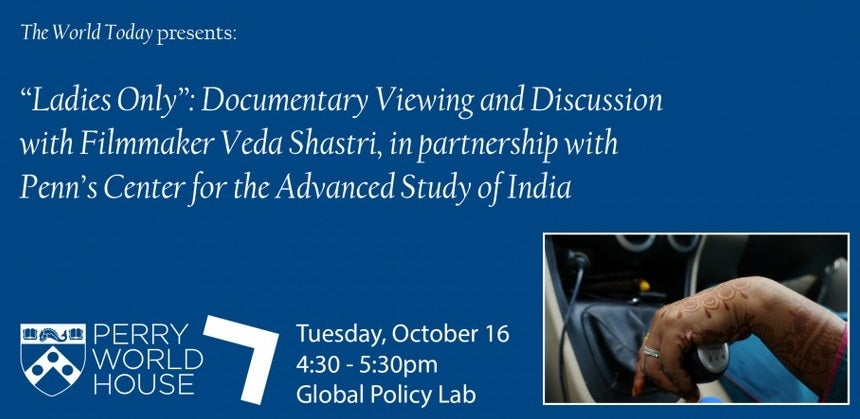The World Today presents “Ladies Only”: Documentary Viewing and Discussion with Filmmaker Veda Shastri
Ladies Only: Getting where you’re going without getting harassed. That’s what’s driving a new generation of Indian women to become taxi drivers-for women only. Enter their world as they negotiate New Delhi’s divided public transport spaces.





